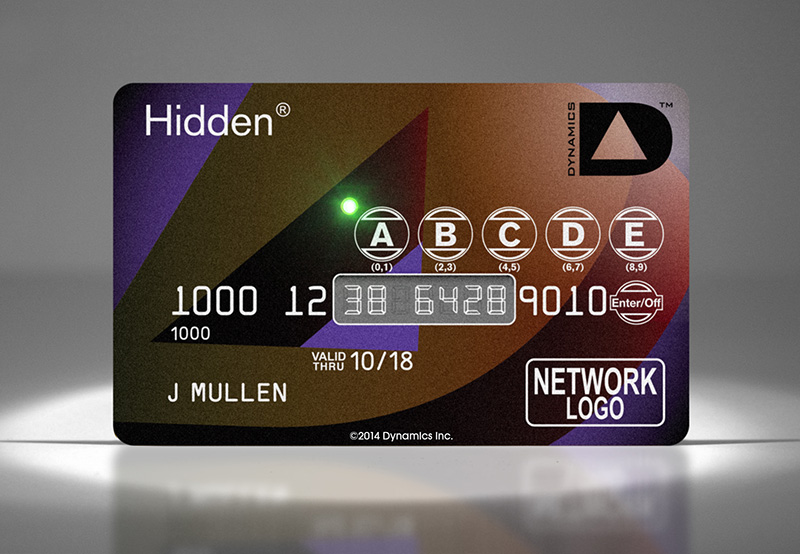
With over 3,600 exhibitors at this year's CES (The International Consumer Electronics Show) in Las Vegas, it's impossible to even categorize all of the various new innovations and technologies on display, much less see them all. But it is possible to discover a few products that offer new and different ways to use technology in today's wired and wireless world.
The emergence of the smartphone as the primary tech tool we use on a daily basis has created a separate industry of app makers seeking to capitalize on our interest. One app on display this week was provided by Unikey which unlocks your home simply by walking up to the front door.
Created by the designers of the Jawbone UP fitness band and the computer for One Laptop Per Child, Unikey's app uses a Bluetooth connection that will activate a door lock with the phone in your pocket to let you in, along with similar "virtual keys" for family members, the plumber, or anyone else you so designate.
The app will also soon be available in another venue people use during the year: the hotel room. According to Unikey's co-founder Jim Johnson, the technology is currently in a pilot with a major hotel chain that will use it as part of the automated check-in process now being phased in by the hospitality industry. "There's a huge movement for bypass check-in right now through hotel apps," says Johnson.
Another smartphone-linked device won't let you into your home, but instead will wirelessly track the quality of the air you breathe once you are inside. Foobot has created a product which contains a set of sensors to measure and monitor pollution sources, fine particles in the air, temperature and humidity. The data is sent to the cloud every five minutes and you can track the good or bad results from a glowing light on the side of the device itself.
If you are feeling hungry, but can't be bothered to cook, now a robot will do it for you. Zimplistic has created a bread box-sized device to automatically cook roti, an Indian bread made from stoneground whole meal flour. The ingredients are placed in small containers on top of the device, a button is pushed, and less than a minute later out pops a fully cooked roti flatbread.
According to co-founder Pranoti Nagarkar, the company has already received $5 million in pre-orders and has a waiting list of 100,000 roti fans. She feels that her product is going to be popular because "making roti by hand is not easy," and foresees future robotic machines that will automatically make meals for us.
Getting children to brush their teeth is another problem that has generated a high tech solution. Grush now offers a toothbrush that actually plays a video game while cleaning your teeth. A sensor inside the handle of the brush links to a smartphone app that plays an on-screen video game with monsters which appear on teeth and then magically disappear as the brush meets the surface of each tooth.
"We transform brushing into a fun game," says Yong-Jing Wang, the device creator.
On the fitness side, there was a new product on display that eliminates the need for cords attached to earbuds while you exercise. FreeWavz is a smart headphone with integrated fitness monitoring and Bluetooth technology. The wireless earbuds are available for preorder and feature noise-cancelling, adjustable frequency levels, and text-to-speech.
One of the most intriguing new products was billed as "the world's first computer in a credit card." Made by a technology startup called Dynamics, the "Hidden" card, which is the same size and weight as a regular one, displays an LED window on the front. By pressing a button on the card, the owner enters a special code that unlocks all of the other functions.
Aside from the obvious security protection this provides, the card also offers a magnetic stripe, chip/pin, and NFC "swipe and pay" capability, a combination that would allow U.S. credit card holders to use it anywhere in the world. The company has a business partnership with MasterCard and hopes to roll their new technology out with banks across the U.S. later this year.
There are plenty of 360 degree cameras on the market, but one company showcased a camera at CES that can record and stream in a 720 degree view. The new Allie camera from IC Real Tech combines two 360 degree views (think up and down plus side to side) into one seamless 720 degree feed. The effect is pretty remarkable and a sample of what it looks like can be found at this recently posted video link.
Finally, as if we don't have enough data to track in today's connected world, there is a new product being offered called Flapit. The technology itself is not new (it draws from the split flap display boards in the 1960s) but what it reports is very 2015. It's a real-time physical counter that connects to all social media platforms, with the ability to showcase everything from how many current followers you have on Twitter to the number of "likes" you receive on a Facebook page, right up to the second.
Perhaps this is yet another lesson that no matter how old a technology may be, there is always going to be a new use for it.














